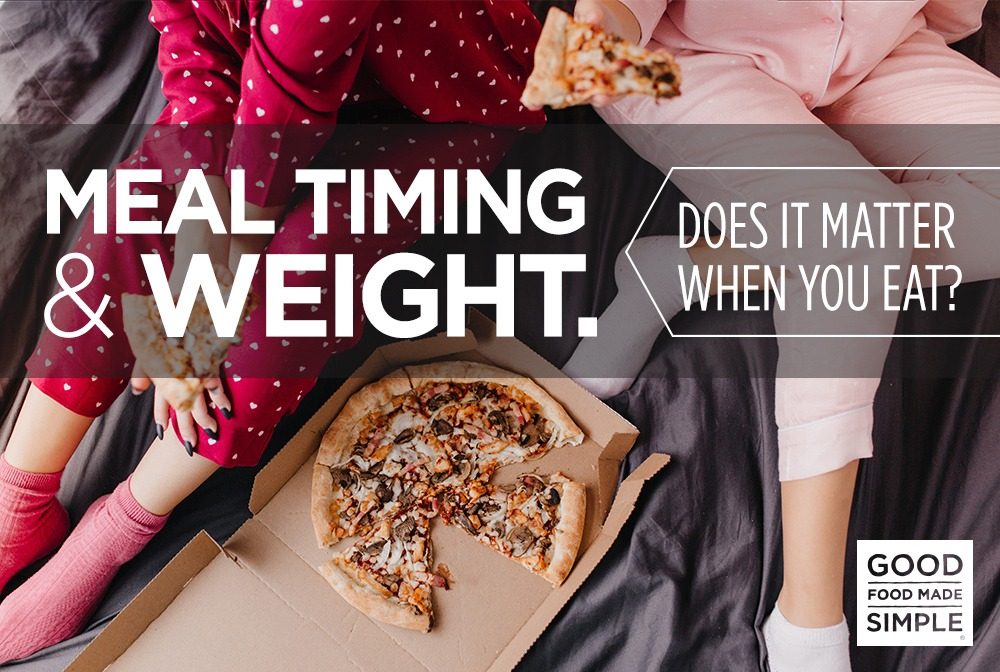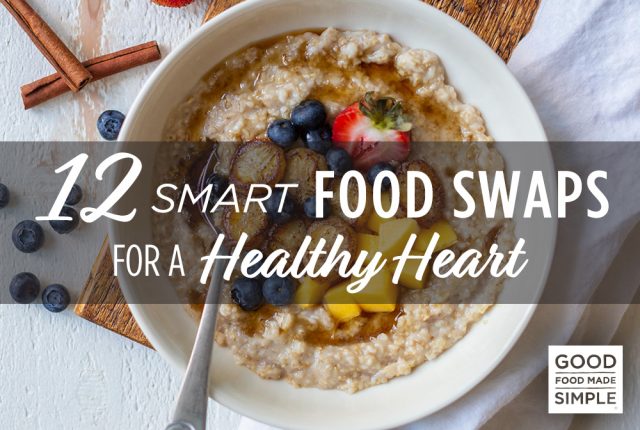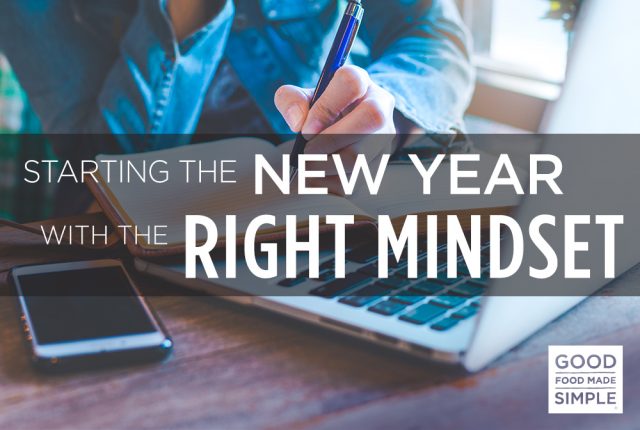
25 Active Date Ideas
While going on dates can certainly be fun, a typical night out with a romantic partner often ends up being focused on eating ...
read more
Most people know that what you eat will affect how you feel and look, which often translates to a certain number on the scale. However, it’s not just what we’re putting on our plates and into our mouths that counts. It turns out that when you consume food also plays a role in managing a healthy weight — which can either help or hinder your overall health.
More and more research is emerging that suggests timing your calorie consumption is something we should be paying way more attention to. Let’s learn more about what science is saying, and how you can optimize meal times in order to feel good, healthy, and confident in your body.
Science Says: Eat Early
We’re about to give you the best reason to eat cookies for breakfast. For starters, eating first-thing will kick-start your metabolism and ensure your body knows to turn your caloric intake into fuel. If you skip breakfast, your body will think it needs to conserve what you consume — versus burn it off — meaning you might be holding onto extra sugars and fats your body would normally metabolize. Science backs this up, too; while there’s a chance you’ll eat fewer calories if you skip breakfast, those people still typically have higher BMI’s (body mass index), a measure of body fat based on your weight in relation to your height.
When it comes to actually timing, aligning your meals with your natural circadian rhythm is also important. As inhabitants of the earth that rotates around the sun in 24-hour stints, we too experience 24-hour day-night cycle that brings certain changes to our daily lives, such as producing melatonin before falling asleep, boosting immunity during the day, and controlling our appetites at various times so we don’t wake up in the middle of the night starving.
Within our internal clocks, our bodies do a better job at metabolizing food when we eat in the morning versus the evenings, which may lead to a healthier body weight. A large study that came out this year backs this up. Scientists discovered that eating more in the morning is a beneficial strategy for weight control. In one experiment, they found that late lunch eaters lost significantly less weight than early lunch eaters over a 20‐week period; another experiment revealed that eating a bigger breakfast led to greater improvements in fasting glucose, insulin, and triglycerides, along with the ability to control hunger throughout the day.
Other studies have continuously found that eating bigger breakfasts led to consuming small dinners and losing more weight over time, too.
On the flip side, studies have shown that folks who eat at night consume more calories than if they were to eat a meal during the day, and there’s evidence that an increased risk of obesity and related health conditions has been associated with breakfast skipping and late night snacking. Additional research has found larger meals at night is connected to an increase in triglyceride levels, which is associated with diabetes, metabolic syndrome, and an overall increase in weight.
Meal Timing — Your Action Plan
All of these studies might make you think: should I just eat breakfast? Will eating later in the day cause doom? The point is not to make you believe eating dinner will cause direct weight gain. Instead, it’s about ensuring you optimize breakfast as a way to eat healthfully in order to regulate your appetite throughout the rest of the day and resist cravings right before hitting the hay.
Some science says that eating late at night — two hours before going to bed — will increase your risk of gaining unwanted pounds. We recommendation to eat like a king at breakfast, chow down like a queen at lunch, and chew away like a pauper at dinner. A good way to look at it is to fit all your meals and snacks within 10-12 hours, such as between 7 am and 7 pm.
Here are some actions items you can take to help get the timing just right.
Stop eating after dinner. As hard as this one may be, it might be the most beneficial to maintaining or losing a little weight. Cut the cravings once the dinner table is cleared away. Enjoy a cup of tea as a way to satiate your pallet instead.
Make breakfast your biggest meal. If we didn’t make this clear enough, we have one more chance: take advantage of breakfast. Don’t be worried about a three-egg omelet or a big bowl of oats. It’s proven to satisfy your hunger, jumpstart your metabolism, and control your appetite throughout the rest of the day.
Use a smaller plate for your evening meal. Other interesting research has shown that eating on a smaller plate actually leads to eating less. Give that a whirl. You can still prepare a good amount of food for dinner; simply package the leftovers for lunch the next day.
Think of snacks like mini-meals. In order to optimize snacking throughout the day, think of them as smaller-sized meals then a quick way to satisfy a hunger pang or sweet tooth. So, instead of grabbing a granola bar, eat a handful of raw nuts with mixed fruit. And instead of chomping away on potato chips, go for popcorn, which is made from whole grains and packs a good bout of fiber.
Stay hydrated! No matter what time of the day it is, staying hydrated throughout will help control your appetite and ensure you don’t get a wave of hunger when it’s close to shuteye. Drinking enough H20 comes with some great benefits, including preventing overeating and maintaining a normal bowel function. As far as how much to drink down, experts recommend 3,000 milliliters for men and 2,200 milliliters for women.. That comes out to 9 to 12 cups of water, a little more than the recommended eight glasses we often hear.
Try this little eating habit shift and see if you feel a difference! You might really find that changing up when you eat has way more of an effect than focusing so closely on what you’re eating. Avoid chowing down close to bedtime, make breakfast count, and stay mindful of snacks and hydrating throughout the day. Before you know it, you might be feeling better than you ever have before.

25 Active Date Ideas
While going on dates can certainly be fun, a typical night out with a romantic partner often ends up being focused on eating ...
read more
12 Smart Food Swaps For A Healthy Heart
February is American Heart Month, and one of the best ways to maintain good heart health is to watch what you eat. Instead of...
read more
Starting the New Year With the ‘Right’ Mindset
With the holiday finally over and the new year upon us, I’d be shocked if you haven’t thought about New Year's Resoluti...
read more